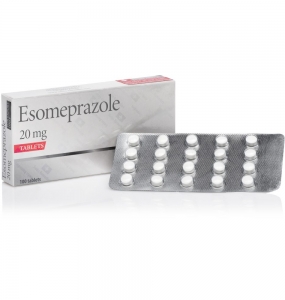


As a potent proton pump inhibitor, esomeprazole goes beyond acid suppression to protect the gastric mucosa from stress-related damage. Its antioxidant properties help neutralize ROS, restore SOD and GSH levels, and prevent oxidative injury. Esomeprazole also downregulates inflammatory mediators like TNF-α and IL-1β by inhibiting NF-κB and p38 MAPK signaling pathways. These effects alleviate gastric tissue damage, making esomeprazole a vital tool for managing stress ulcers.
Xie, W., Huang, X., Chen, R., Chen, R., Li, T., Wu, W., & Huang, Z. (2019) Esomeprazole alleviates the damage to stress ulcer in rats through not only its antisecretory effect but its antioxidant effect by inactivating the p38 MAPK and NF-κB signaling pathways. Drug Design, Development and Therapy.
Disclaimer: Information provided it this page is for general information only and does not substitute for professional medical advice.
For detailed information about Esomeprazole 20 by Swiss Remedies, consult with your doctor or healthcare professional.


Xie, W., Huang, X., Chen, R., Chen, R., Li, T., Wu, W., & Huang, Z. (2019) Esomeprazole alleviates the damage to stress ulcer in rats through not only its antisecretory effect but its antioxidant effect by inactivating the p38 MAPK and NF-κB signaling pathways. Drug Design, Development and Therapy.

Xie, W., Huang, X., Chen, R., Chen, R., Li, T., Wu, W., & Huang, Z. (2019) Esomeprazole alleviates the damage to stress ulcer in rats through not only its antisecretory effect but its antioxidant effect by inactivating the p38 MAPK and NF-κB signaling pathways. Drug Design, Development and Therapy.

Xie, W., Huang, X., Chen, R., Chen, R., Li, T., Wu, W., & Huang, Z. (2019) Esomeprazole alleviates the damage to stress ulcer in rats through not only its antisecretory effect but its antioxidant effect by inactivating the p38 MAPK and NF-κB signaling pathways. Drug Design, Development and Therapy.